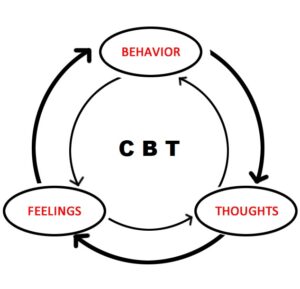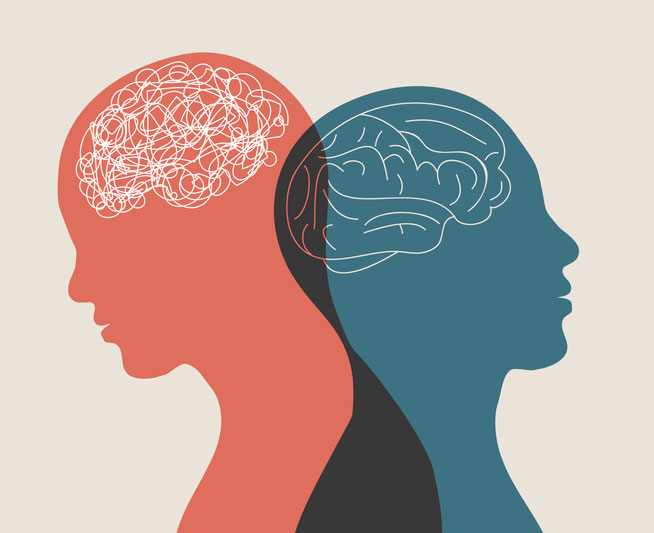Sleep is one of the most essential aspects of our lives, yet it’s often overlooked and taken for granted. This is where cognitive-behavioral therapy (CBT) comes in – a powerful tool that helps people overcome insomnia and other sleep disorders by addressing negative thoughts and behaviors that interfere with their ability to fall asleep. In this blog post, we’ll delve deeper into CBT for sleep and explore how it can help you get the quality rest you need to lead a healthier life!
Contents
- 1 What is Cognitive Behavioral Therapy?
- 2 Techniques of Cognitive Behavioral Therapy For Sleep
- 3 How Does Cognitive Behavioral Therapy Work?
- 4 Pros and Cons of Cognitive Behavioral Therapy For Sleep
- 5 How to Find a Qualified Cognitive Behavioral Therapist?
- 6 How To Prepare for Your First Session?
- 7 Tips for Getting the Most Out of Cognitive Behavioral Therapy
- 8 Conclusion
What is Cognitive Behavioral Therapy?

Cognitive behavioral therapy (CBT) is a type of psychotherapy that is used to help people change their thoughts and behaviors. CBT is an effective treatment for conditions like anxiety, depression, and post-traumatic stress disorder. It can also help people with sleep problems.
CBT works by helping people to identify and change the thoughts and behaviors that are causing their problems. For example, someone who is anxious about flying may be asked to imagine getting on a plane and taking off. This can help them to realize that their fear is irrational and that they are capable of coping with the situation.
People who have trouble sleeping may be asked to keep a sleep diary. This can help them to identify patterns in their sleep habits that may be contributing to their problem. They may then be taught how to change these patterns so that they can get a better night’s sleep.
Techniques of Cognitive Behavioral Therapy For Sleep

Some of the techniques that are used in cognitive behavioral therapy for sleep (CBT-I) include:
Problem-Solving
One of the main techniques used in CBT-I is problem-solving. This technique involves identifying the causes of insomnia and then developing strategies to address them. It can help people learn how to manage their thoughts, feelings, and behaviors so they can better regulate their sleep patterns.
This also includes developing positive habits that can help promote better sleep. This could include setting a consistent bedtime, establishing a calming nighttime routine, avoiding too much caffeine or alcohol before bed, and finding ways to reduce stress and anxiety.
Relaxation Techniques
An important component of CBT-I is teaching relaxation techniques. This involves learning specific strategies that can help reduce stress and tension and make it easier to fall asleep.
Relaxation techniques include progressive muscle relaxation, controlled breathing, guided imagery, autogenic training, meditation, yoga, and tai chi. All of these methods are designed to help relax the body and mind, which can encourage better sleep.
Stimulus Control
Another technique used in CBT-I is stimulus control. This technique helps people associate their bed with sleep by controlling what they do while in bed. For example, it may involve avoiding activities such as reading or watching television in bed—these activities are associated with being awake and can make it harder to fall asleep.
Sometimes stimulus control can also involve not getting out of bed while awake. This means that if you wake up in the middle of the night, it is best to stay in bed and focus on relaxation techniques until you feel sleepy again.
Cognitive Restructuring
Cognitive restructuring is a technique used in CBT-I. involves identifying negative thoughts or beliefs that are interfering with sleep, such as worrying about not being able to fall or feeling anxious about the next day. Once these thoughts and beliefs have been identified, they can be challenged and replaced with more positive thoughts.
Also, this technique can help people learn to manage their expectations about sleep. This involves recognizing that it may take time to get used to sleeping better, and also understanding that not every night will be perfect. With cognitive restructuring, people can learn how to cope with poor nights of sleep more positively.
How Does Cognitive Behavioral Therapy Work?
Cognitive behavioral therapy (CBT) is a type of psychotherapy that helps people change their negative thoughts and behaviors. CBT has been proven to be an effective treatment for sleep disorders, and it can be used to treat other conditions as well.
- CBT works by teaching people new ways of thinking and behaving. It also helps people learn how to manage their stress and anxiety levels. CBT can be done in individual or group sessions, and it usually lasts for 12-20 weeks.
- The working of CBT is based on the idea that our thoughts, feelings, and behaviors all interact with each other in an interconnected way. Therefore, if we want to change one part of this system (ie: our sleep), then it’s important to also work on changing our thoughts and behaviors.
- In CBT for sleep disorders, therapists will help patients identify and challenge their negative thoughts about sleep. They will also work on changing behaviors associated with sleep, such as getting to bed at the same time each night and avoiding caffeine in the evening.
Pros and Cons of Cognitive Behavioral Therapy For Sleep

Many benefits come along with Cognitive Behavioral Therapy for Sleep (CBT-I), but it can also have some drawbacks.
Pros of CBT
- CBT is a non-medicinal option that focuses on teaching individuals healthy sleep habits, such as setting a consistent bedtime routine and avoiding caffeine late in the day.
- CBT can be adapted to fit an individual’s sleep needs, as it is not a one-size-fits-all approach.
- It teaches individuals to recognize and cope with potential sources of stress or anxiety that may interfere with sleep quality, such as worries about work or relationships.
- Unlike medications, CBT has no known side effects and can be a safe option for those who are pregnant or breastfeeding.
Cons of CBT
- It requires an investment of time and effort to see results – it isn’t necessarily a quick-fix solution.
- It may not be suitable for individuals with more severe sleep disturbances or mental health concerns, as it can be too time-consuming for some.
- CBT also requires a level of self-discipline and commitment to the process to see any results, which may be difficult for some people.
- In addition, CBT sessions are typically quite expensive, so they may not be a feasible option for those with limited financial resources. Sometimes, a referral to a specialist is needed to access CBT.
How to Find a Qualified Cognitive Behavioral Therapist?
There are a few things to consider when looking for a qualified cognitive behavioral therapist (CBT) for sleep.
- First, it is important to find a therapist who is trained in CBT specifically for sleep. This type of therapist should be able to provide evidence-based treatments that have been proven to be effective for insomnia.
- Second, it is important to find a therapist who is a good fit for you. This means finding someone who you feel comfortable talking to and who you feel understands your unique situation.
- Finally, it is important to make sure the therapist you choose is experienced in working with people with sleep problems. This will ensure that they are familiar with the techniques and strategies that are most effective for treating insomnia.
How To Prepare for Your First Session?

These are some of the tips for preparing for your first cognitive behavioral therapy session:
- Establish a regular sleep schedule. Go to bed and wake up at the same time every day, even on weekends. This will help to regulate your body’s natural sleep rhythm.
- Create a relaxing bedtime routine. A few minutes of reading or taking a bath can help transition your mind and body from the day’s activities to sleeping.
- Keep a sleep diary. For one week, write down when you go to bed, when you wake up, how many hours you slept, and how you feel during the day. This will help you identify patterns in your sleep habits and behavior that may be affecting your sleep quality.
- Make your bedroom dark, quiet, and cool. These conditions are conducive to falling asleep and staying asleep throughout the night.
- Avoid caffeine and alcohol before bedtime. Both of these substances can disrupt sleep and make it more difficult to fall asleep or stay asleep through the night.
Tips for Getting the Most Out of Cognitive Behavioral Therapy
The following tips can help you get the most out of CBT for sleep:
- Be open to change. CBT requires you to challenge long-standing beliefs and behaviors that may be contributing to your sleep problems. If you’re not willing to change, CBT may not be suitable for you.
- Be prepared to commit time and effort. CBT typically involves weekly sessions for several months. In addition, you’ll need to practice new thoughts and behaviors outside of therapy sessions.
- Be an active participant in therapy. To get the most out of CBT, it’s important that you actively participate in therapy sessions and practice assignments. This means being honest with your therapist about your thoughts and feelings and doing your best to apply what you’ve learned in therapy to your daily life.
Conclusion
Cognitive Behavioral Therapy for Sleep is an effective method of improving your sleep quality and duration. It’s an evidence-based approach that can be tailored to meet the unique needs of each individual. So it’s a great option for anyone looking to improve their sleeping habits. With just a few simple steps, you can start experiencing the benefits of improved sleep in no time,
It’s important to find a qualified therapist who is experienced in working with people with sleep problems, and it’s also essential to make sure that you’re adequately prepared for your first session. With the right preparation and effort, cognitive behavioral therapy can be an invaluable tool in achieving better sleep.
For more information, please contact MantraCare. Sleep is an essential part of our daily routine and it plays a significant role in maintaining a healthy body and mind. If you have any queries regarding Online Insomnia Counseling experienced therapists at MantraCare can help: Book a trial therapy session


